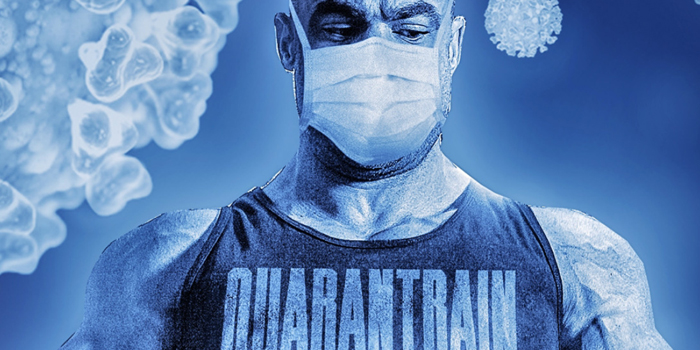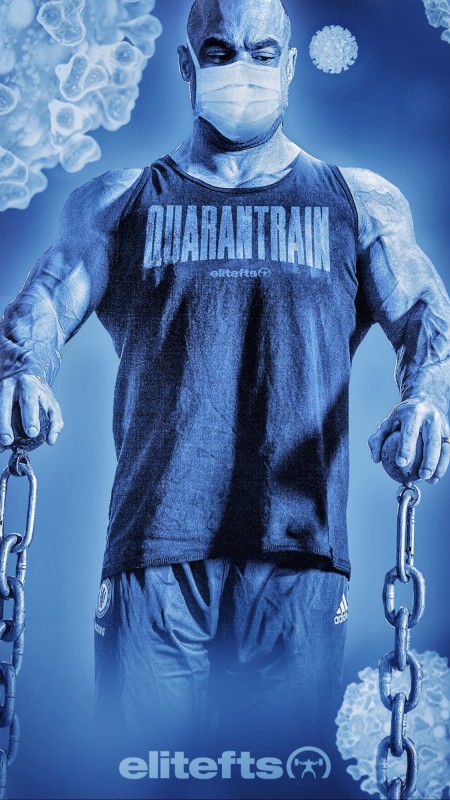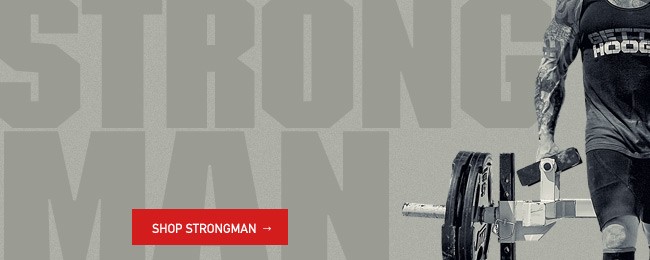
Let's be honest about the current state of affairs—they suck. People are worried, losing their jobs, there’s no toilet paper, and the ONE THING we meatheads use to combat the stress of normal life, let alone our now apocalyptic lives, has been taken from many of us. THE GYM.
Like every other gym rat out there, I was pissed when I heard my gym was closed. After that first initial shock, the coach and therapist in me began to process the situation, and I realized two things. First, this is a public health issue bigger than my desire to lift in the grand scheme of things. Second, the glass is half full because this is an opportunity to grow as a coach, athlete, and as an overall person. Time to play “20 Questions” to help you see the better side of the effect this pandemic has on your training.
1. When was the last time you had a deload?
Not a missed session or two, not a taper for a competition, but an actual deload? One that is built around reducing the systemic stress on your body from heavy weights and high training volumes to let your body catch up on the fatigue you’ve been putting it through? A lot of athletes know how to push the gas pedal on the platform and in the gym, but have they ever really learned to let off to see how this can help make them stronger? This forced training gap that many of us are experiencing is our opportunity to take some time away from the gym stress to physically and mentally recover.
2. When was the last time your training cycle consisted of large amounts of general physical preparedness (GPP)?
As strength athletes, we’re always obsessing over that maximal number. We want to lift heavy to be strong as hell but don’t want to do the little things that allow us to recover. We want to build work capacity (so we can compete in multiple events in a contest) or want to build the connective tissues that support our heavy lifting, but we “don’t have time.” It's usually because we suck at them. GPP is the base that strength and longevity are built upon, and the older I get, the more I realize its importance. Take these few weeks and start walking. Carry your toddler around the block a few times. Do some interval shuttles. Hell, even try to go for a light *gasp* jog. If you find that a 20-minute walk carrying your young child around wears you out, that’s a clear sign you're not in excellent shape and should be doing more of these types of activities. If not for your strength gains, then do it for your heart gains so you can be an active participant with that kid (or furry animal) in another ten years. Get creative with this, find what you suck at and do more of it, so you don’t suck at it. You may find this was the missing piece to adding pounds to your total or what allowed you to not hit a wall at a Strongman competition after the third event.
3. When was the last time you performed bodyweight or calisthenic exercises as the bulk of your program?
Much of this question can roll back into the GPP paragraph above, so I’ll leave that aspect of it alone. Research shows us that when training youth lifters, we start with bodyweight exercises. Why? We begin with bodyweight exercises to develop neuromuscular and proprioceptive control. Why is this important? You spend most of your life moving and controlling your body, which is the foundation of athleticism. While most strength athletes must be more strong than athletic (unlike say, a basketball player), they still must be able to move in a fluid and controlled motion, *cough* *cough* talking to you Strongman competitors. Being able to control your own body is the foundation of human movement, not the barbell (or atlas stone, or yoke.) This compares to someone who drives a race car around and around the racetrack all the time but never takes the family car out to the grocery store. They forget how to drive like normal people and end up causing an accident on a neighborhood street. So, if you struggle with bodyweight movements, this is a great time to go back to basics and develop some of that relative strength before you wreck yourself by trying to play with your kids in the backyard because you don’t know how to move your own body.
4. Any nagging injuries?
I get it, when you get to a certain point in a strength sport, you’re always dealing with something. That becomes a part of the sport at a certain level. Some athletes let these little things become bigger things that they try to cover up with horse creams, neoprene everything, and supportive gear, all of which allow them to train but don’t fix anything. To those folks, this is the universe telling you to take the time to rehab your problem. Pain can downregulate muscle activation, which in turn limits force production and motor coordination. Taking the time to get rid of these pains may make you stronger during this downtime. Do your research, reach out to remote PT coaches for telehealth consults given the current world situation, and do the things you need to, so when the zombie apocalypse finally passes, you’ll come back to the gym healthier and stronger than ever.
5. When was the last time you unplugged and connected with your loved ones?
Do you ever involve your family and loved ones with your fitness? Depending on the level of competitor you are, your families make a lot of sacrifices for you to compete. They pick up after you, deal with you talking about it ALL THE TIME, watch the kids for you, put up with your hangry when you’re cutting, and most importantly, are forced to give up their time with someone they love dearly... you. Take this time to unplug from your lifting videos on Instagram, spend time with the loved ones in your house, take them with you on walks, and involve them in your fitness as well. Now, if your spouse or loved one is anything like mine, they may not like you trying to have a strict training regimen with your workouts where you’re dictating everything they’re doing. So ask them what types of things they would like to do and do those. Moral of the story here, take this time, and connect with your loved ones.
I'm in the same boat as everyone else here. I'm upset I can't train the way I want to, I'm worried about my small gym owner surviving this mess, and I'm wondering how long I have to use coffee filters in place of toilet paper since I can't seem to find a roll to buy anywhere. Let's all just take a deep breath, remember this is a public health issue bigger than our training, and if we follow some of the points outlined above there's a good chance when your gym opens back up you'll make all of your gym buddies jealous when it looks like you haven't missed a beat. Hell, you might even be hitting new PR's to start your post-apocalyptic gym life. Worst case scenario? You've strengthened the relationships with the loved ones in your house, which is always the best type of PR.
Mark Clevenger is a practicing physical therapist in the state of Kentucky, a current Strongman Corporation and U.S. Strongman competitor, as well as the current head sports performance coach for the dedicated strongman training group, Louisville Strongman. His former professional experience includes varsity football at Depauw University, being a CrossFit coach and high school football coach, and eight years of military service. Mark's education and certifications include a Doctor of Physical Therapy degree acquired from Nova Southeastern University, a bachelor's degree in kinesiology acquired from Depauw University, and a CSCS from the NSCA. Check out his website at louisvillestrongman.com.












1 Comment